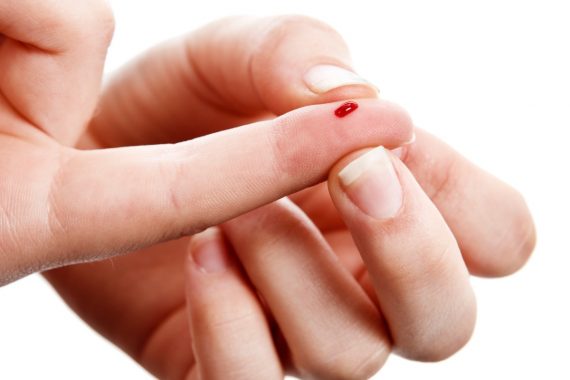Commissioning of NHS Health Check is fragmented and causing duplication of work, the BMA’s deputy chair has told a committee of MPs.
Dr David Wrigley also warned that the move to do more Health Checks using finger prick blood samples was leading to inaccurate results causing worry for patients and more work for GPs having to do repeat tests.
Speaking to the Health and Social Care Select committee he said it needed national direction and a direct enhanced service to fund practices to do the work.
The committee was following up on a report from the public spending watchdog last year which found the current system of NHS Health Checks was not working ‘effectively’.
In November the National Audit Office said the Government should consider giving GPs incentives to do NHS Health Checks via QOF.
It found in 2023/24, only 3% of local authorities delivered a Health Check to all of the annual eligible population in their areas, with less than half of people attending.
The report noted problems with current commissioning through local authorities but recognised concerns about the capacity of general practice to provide checks where funding for them had fallen over the past decade.
Dr Wrigley told MPs that in his experience, the outsourcing of Health Checks had created problems.
‘In my area, Lancashire and South Cumbria, there are other organisations that are undertaking Health Checks, and it’s rather disjointed.’
He added that the BMA/RCGP joint GP IT committee has concerns about plans for a Digital Health Check because of inaccurate results and he had seen this in his own practice.
‘I’ve had patients come to me asking for an urgent appointment because they were told their blood cholesterol was really high on a finger prick, and it because it’s not as accurate, we then have to undertake a repeat tests and it’s not high.
‘The patient’s undergone a lot of anxiety and concern, obviously, duplication of work and tests. This is not a good way of utilising resources.’
He added he asked members of the BMA GP committee around the country for their experience and the different responses he received on how Health Checks were commissioned were ‘mind boggling’.
‘Things like this need national coordination and national directive. These outsourcing models lead to very disjointed care.’
Professor Sir Sam Everington, a GP at the Bromley by Bow Centre in Tower Hamlets that pioneered social prescribing said there was also a need for local commissioning targeted to population need but ICBs should be set targets.
‘If the Government is going to be successful in the shifting to community, to prevention from illness, you’ve got to almost set a target for each ICB to increase the funding for this by 1% every year for the next five years.
‘You’ve got to be disciplined. At the moment, our ICB, and many ICBS are not controlling the acute sector budget, which is actually the least productive part of the system.’
He added: ‘Our ICB is very innovative. It has given us a population health budget for 50,000 patients of a quarter a million in our APMS contract. That’s the only APMS contract that has got that in the country. This should be the norm across the country.’
Representatives from NHS England were also grilled by MPs on progress being made on Health Checks.
Jonathan Marron, director general for primary care and prevention, said pilots were being done this year in Norfolk, Lambeth and Medway on Digital Health Checks through the NHS App with tests sent in the post as a way to make it easier for people to access.
Plans are to scale up nationally from late 2025/26.
‘We’re doing a reasonable job on offering [Health Checks]’, he said. ‘But the real challenge is whether we can get people to take them up.’
He said they were also working with 48 local authorities to offer Health Checks at work for 130,000 people with an evaluation due in March.
‘We’re really trying to look at what are the ways of reaching more people with the Health Checks.
‘There is a real variety of practice and learning from the best of local government on how they have managed to not only up the numbers of people having a check but really reaching the communities that are most at risk is the next big piece of work we need to do.’
‘This is a real challenge, because we’re trying to balance different things. We would like everybody to benefit and a sense of more national consistency, but also we really want to be able to tailor locally. Can we reach the communities that don’t really engage with our services, your best chance of doing that is doing that locally.
‘So I think there’s lots of advantage of having a locally commissioned service but it needs to dock in with the NHS services, and we need to make sure that the GP contract, which basically pays for follow up care and incentivised through QOF, is fully aligned with CVD prevention.’
Last year, a study using UK Biobank participants found that attending an NHS Health Check is associated with a lower risk of both death and several diseases.
Pulse October survey
Take our April 2025 survey to potentially win £200 worth of tokens













